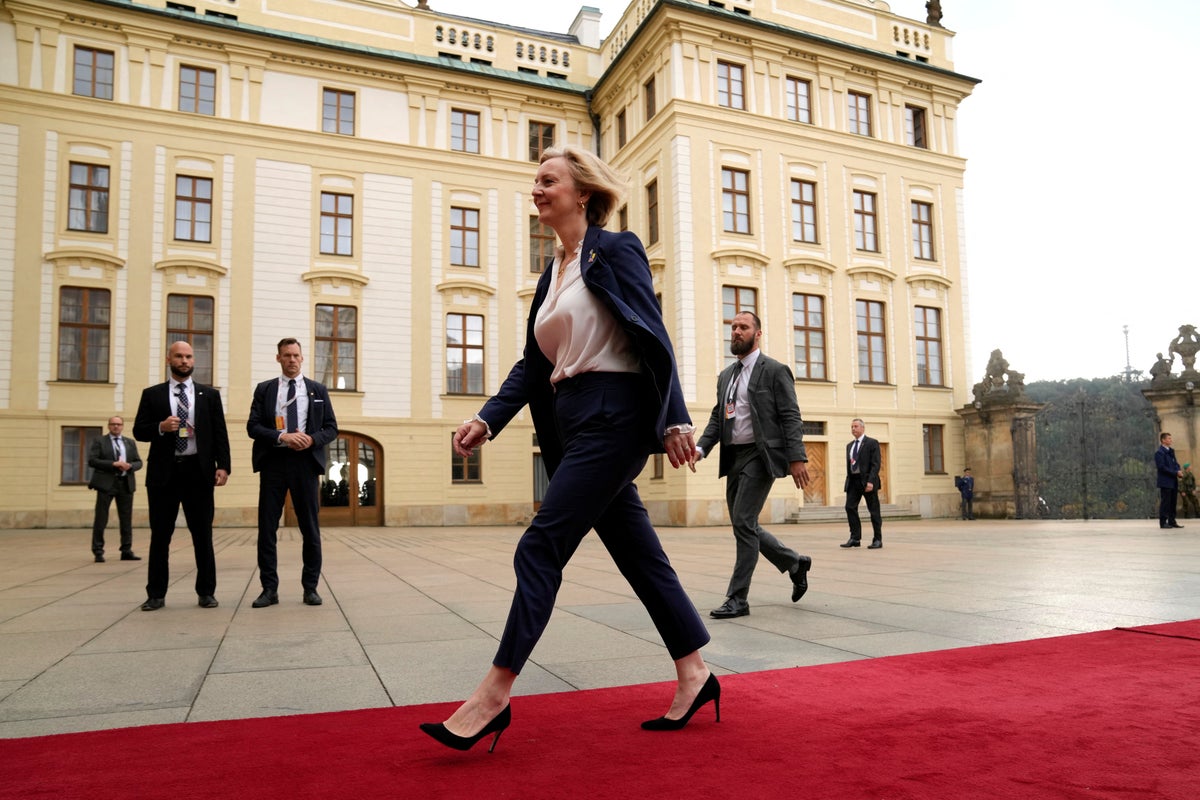
Liz Truss has declared French president Emmanuel Macron “a friend” in a bid to repair a diplomatic rift sparked when she refused to use the word during the Conservative leadership campaign.
The comment came as the prime minister attended a summit of the new European Political Community called by Mr Macron to foster cooperation between the continent’s EU and non-EU members.
The PM insisted that her presence at the summit in the Czech capital Prague did not indicate a desire to “move closer to Europe” after Brexit, but was an effort to work together with allies on issues like energy supplies and the Ukraine war.
Ms Truss raised Parisian hackles when she was asked during a leadership hustings event whether Mr Macron was “friend or foe” and replied: “The jury’s out.”
A clearly stung Macron responded: "The United Kingdom is a friend of France... regardless of its leaders and sometimes despite its leaders.”
But the pair appear since to have smoothed over their differences, and it is understood the incident was not mentioned when they met at the United Nations in New York last month.
Energy security and migration were top of her agenda as she held bilateral talks with Mr Macron in Prague.
Asked ahead of the meeting how she now viewed the French president, Ms Truss told broadcasters: “He is a friend.”
She added: “I work very, very closely with President Macron and the French government and what we’re talking about is how the UK and France can work more closely together to build more nuclear power stations and to make sure that both countries have energy security in the future.
“We’re both very clear the foe is Vladimir Putin, who has, through his appalling war in Ukraine, threatened freedom and democracy in Europe and pushed up energy prices, which we’re now all having to deal with.”
After the meeting, Downing Street said the pair had “agreed to deepen cooperation on illegal migration within the bounds of international law, to tackle criminal groups trafficking people across Europe, ending in dangerous journeys across the Channel”.
Ministers should conclude “an ambitious package of measures” on the problem this autumn, said No 10, which also announced that an Anglo-French summit will be held in France next year.
Addressing her decision to attend the European Political Community meeting, Ms Truss said: “This is not about moving closer to Europe. “This is about working with Europe on issues that we both face. We both face rising energy costs.
“That’s why I took the decision to put in place the energy price guarantee so people in Britain weren’t facing bills of up to £6,000. That is why we’re working with our European neighbours on doing more on the North Sea, on offshore wind, which I have been talking about today.
“We’re working with our partners on more nuclear energy, so that we’re never in the same position again of being dependent on Russia, and Russia using energy as leverage against free democracies.”
Russia and Belarus were not invited to join the 44 nations in Prague, who heard a video address from Ukrainian president Volodymyr Zelensky, asking for continued support in his struggle to free his country from invaders.
In a short address to the European Political Community leaders, Ms Truss recalled the example of Vaclav Havel, the former dissident who became the first president of the Czech Republic following the collapse of communist rule, as she argued for the need to stand up for freedom.
She said that the UK was determined to work with allies to support Ukraine and to resist authoritarianism.
The German ambassador to the UK said the PM’s attendance in Prague, at which she held brief talks with Irish counterpart Micheal Martin, was “a very important step because it sends the signal that we want to cooperate”.
Miguel Berger told BBC Radio 4’s World at One: “I see a very clear willingness to re-engage with the European Union, to sit down and try to work out the Northern Ireland protocol questions.
“Because we all have to understand… that as like-minded countries we have to work together and focus on the real and big challenges.”







